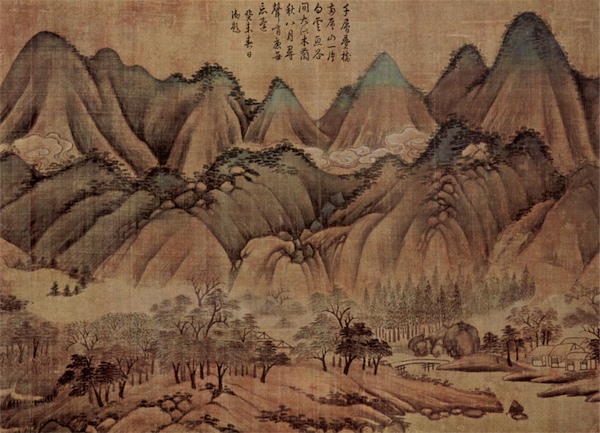Translating any form of text is difficult. Translating poetry is near impossible. The subtleties of language are on full display through poetry, where you can say as much as you want with the least amount of words of any literary genre. This is of course, truer of some languages than others. Languages that use characters, like Chinese and Japanese, can impart much information through very few words. “Deer Park” is a Chinese poem that has been lost to the sands of time. Our earliest copy comes from 900 years after Wang Wei wrote it. It is a unique poem in modern day, both for its simplicity and for its subject matter, however, it has caught the attention of many translators, many of whom have made attempts with varying success.

19 Ways is a book with 19 different translations of the same poem. Each one, as is expected of translation, will either add or subtract from the original kanji. With each new iteration, you come to appreciate the subtleties of language and the original piece more. For you see, “Deer Park” was written by a Buddhist man to describe his experiences walking along the Wang river. The kanji makes it possible to describe the experience without much fanfare, with each character representing things like “mountains”, “voices”, and most importantly, “light”, but it is incredibly difficult to get the same effects through English or any western or Latin language.
It takes many translations in the book to reach a point where a translator recognizes the importance of light and of the cycle of day and night. In the 15th translation by Octacio Paz (who translated the Chinese into Spanish and for the sake of the book it has been translated again into English), he says that he realized the importance of the sunset through research into Buddhism. He wrote of his own translation, “There I encountered a confirmation of my suspicion: for Wang Wei the light of the setting sun had a very precise meaning. An illusion to the Amida Buddha: at the end of the afternoon the adept meditates and, like the moss in the forest, receives illumination” (31).
Most other translations focus on the “loneliness” of the mountain, as if the mountain needs to be personified. “Deer Park” doesn’t need personification nor a narrator. It is a poem about spiritual reflection. It is about being alive and present in the moment rather than rushing through to the next one. The beauty of the Chinese language is that it takes about 22 characters to describe what just took me several hundred words.